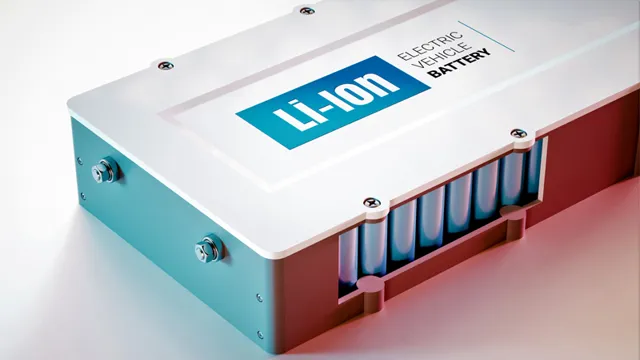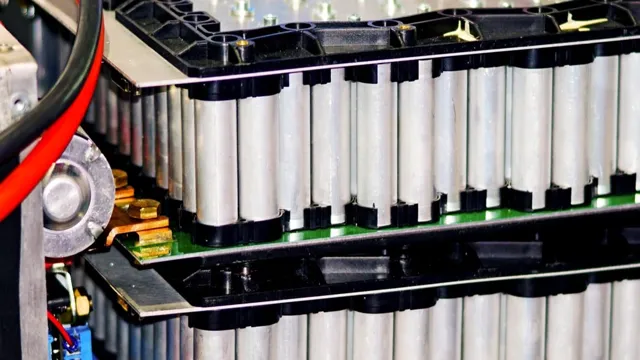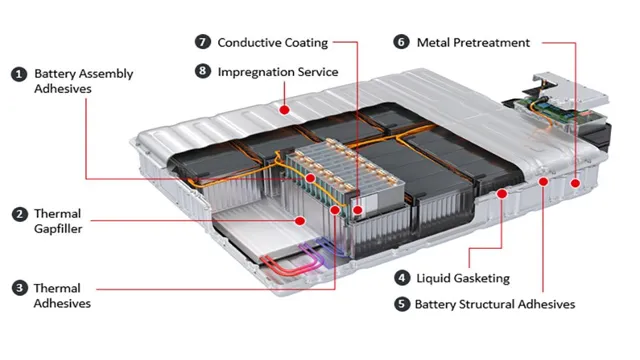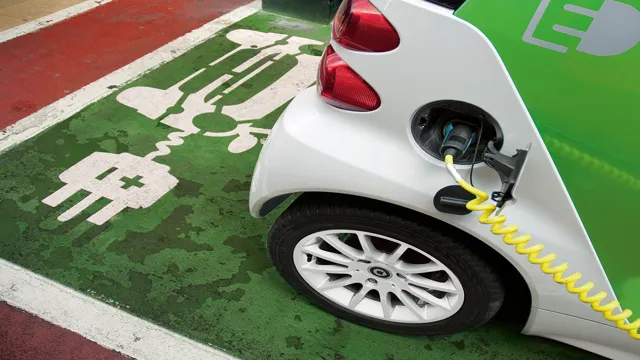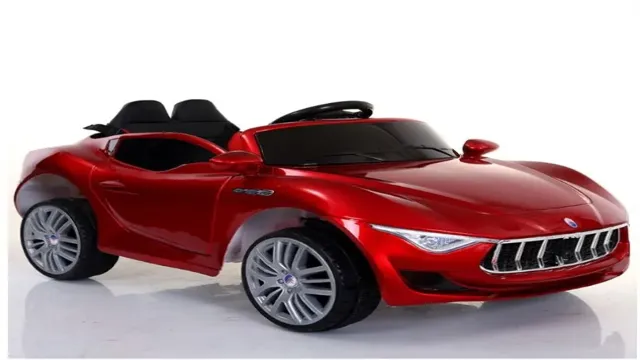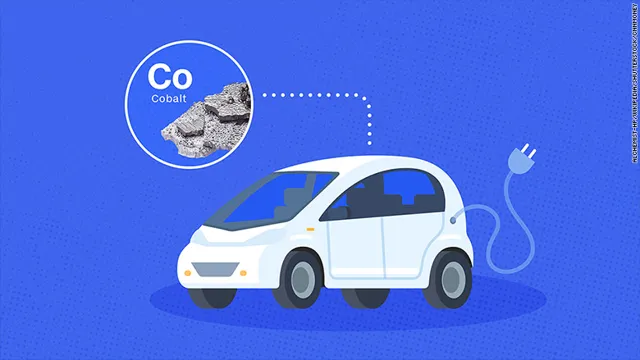Revving Up the Truth: Are Lithium Ion Batteries the Driving Force in Electric Cars?
As our world becomes increasingly conscious of the impact we have on the environment, more and more people are seeking out alternatives to traditional gas-powered vehicles. Electric cars are one such alternative and have seen a surge in popularity in recent years. As electric cars rely solely on electricity to power their engines, the type of battery used is crucial to their success.
Enter lithium-ion batteries – the backbone of electric cars. These batteries offer a range of benefits, including increased energy density, longer lifetimes, and reduced maintenance costs. In this blog post, we’ll explore the importance of lithium-ion batteries in electric cars and how they’re changing the automotive industry for the better.
What are Lithium Ion Batteries?
Yes, lithium-ion batteries are commonly used in electric cars due to their high energy density and long cycle life. These types of batteries are rechargeable and use lithium ions to transfer stored energy between electrodes. While other types of batteries, such as lead-acid or nickel-metal hydride, can also be used in electric cars, lithium-ion batteries have become the go-to choice for many automakers due to their high efficiency and lighter weight.
They are also used in many other portable electronic devices such as smartphones, laptops, and cameras. Moreover, lithium-ion batteries have a low self-discharge rate, which means they can retain charge for long periods even when not in use. As electric cars become more prevalent, the demand for lithium-ion batteries is expected to continue to grow, leading to advancements in battery technology and increased availability.
Definition and Composition
Lithium ion batteries are a type of rechargeable battery that has gained widespread use due to its high energy density and long lifespan. These batteries are composed of two electrodes – an anode and a cathode – separated by an electrolyte. The anode is typically made of graphite, while the cathode is made of lithium cobalt oxide, lithium manganese oxide, or lithium iron phosphate.
Lithium ions move from the anode to the cathode during charging, and back again during discharge, creating a flow of electrical energy. The use of lithium cobalt oxide in particular has made lithium ion batteries popular in consumer electronics due to its ability to provide high energy output in a compact package. However, these batteries can also pose safety hazards if not properly manufactured or handled, as shown by several high profile incidents.
As research continues into developing new electrode materials to increase energy density and lifespan while reducing costs, lithium ion batteries will likely play a significant role in the future of portable power and electric transportation.
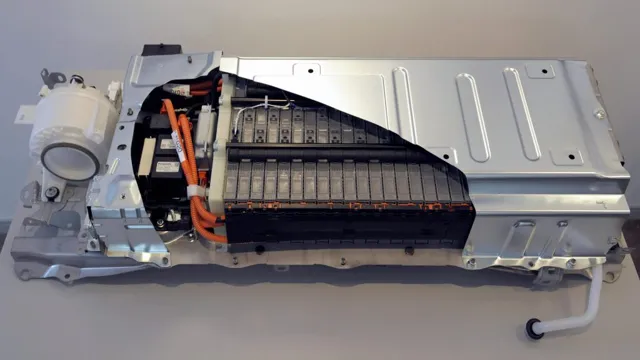
Advantages and Disadvantages
Lithium ion batteries are a popular type of rechargeable battery used in a wide range of devices, from smartphones and laptops to electric vehicles and even aircraft. These batteries offer several advantages over other types, including a high energy density, long cycle life, and low self-discharge rates. They also have a quick recharge time and don’t suffer from the memory effect seen in older rechargeable batteries.
However, lithium ion batteries also have some disadvantages. They can be expensive to manufacture, and they require careful handling to prevent overheating and fires. Additionally, their performance can degrade over time, and they may not be suitable for use in extreme temperatures.
Overall, lithium ion batteries are an effective and efficient power source, but they do have some drawbacks that must be considered before use.
Electric Cars and Lithium Ion Batteries
Yes, lithium-ion batteries are commonly used in electric cars. In fact, they’re the preferred choice due to their high energy density, fast charging capability, and longer lifespan. Lithium-ion batteries are made up of lithium cobalt oxide or lithium iron phosphate and offer many advantages over traditional lead-acid batteries, including better efficiency and environmental benefits.
Although they are more expensive to produce, the cost of lithium-ion batteries has been declining recently and projections suggest that they may soon become cheaper than traditional batteries. As a result, we can expect to see an increasing number of electric cars in the future as lithium-ion batteries become more readily available and affordable. While there are still some concerns about the environmental impact of lithium-ion batteries, their overall advantages make them a key component of electric vehicles and a promising step towards a more sustainable future.
History and Development of Electric Cars
Electric cars have been around since the mid-19th century, but they didn’t become popular until the late 1990s and early 2000s when advancements in lithium-ion battery technology made them more efficient and practical. The development of these batteries revolutionized the electric car industry by allowing for longer driving ranges and quicker recharge times. Unlike their predecessors, which used lead-acid batteries, modern electric cars are powered by lithium-ion batteries that can be recharged hundreds of times and last for many years.
These batteries use a chemical reaction to convert stored energy into electrical power, resulting in a cleaner and more sustainable form of transportation that is better for the environment. In addition, the cost of lithium-ion batteries has been decreasing over the years, which has made electric cars more affordable for consumers. This, in turn, has led to an increase in electric car sales around the world, and it’s only likely to continue as the technology continues to improve.
Lithium Ion Batteries as the Preferred Technology
Electric cars are becoming increasingly popular, especially with lithium ion batteries being the preferred technology. These batteries use rechargeable lithium ions to store and release energy, making them ideal for use in electric cars. Not only are they more efficient and have a longer lifespan compared to traditional Lead-Acid batteries, but they also offer a higher energy density.
This means that a lithium ion battery pack can store more energy in a smaller space, allowing for the design of sleeker and more energy-efficient electric vehicles. With the growing concern for the environment and individual carbon footprints, electric cars with lithium ion batteries are playing a crucial role in reducing greenhouse gas emissions and promoting sustainable transportation. As the technology continues to improve, it’s exciting to anticipate the possibilities that electric cars and lithium ion batteries hold for the future of transportation.
Comparison with Other Battery Types
When it comes to electric cars, lithium ion batteries are currently the preferred choice. These batteries provide a high power density, long lifespan, and relatively low weight. In comparison to other types of batteries, such as lead acid or nickel-metal hydride, lithium ion batteries also have a higher energy density.
This means that they can store more energy in a smaller space, allowing electric cars to have a longer driving range without needing to recharge. While there are other promising battery technologies being developed, such as solid-state batteries, they are not yet ready to be mass-produced at a competitive price point. As a result, lithium ion batteries remain the most practical option for electric cars at the moment.
Benefits of Lithium Ion Batteries in Electric Cars
Indeed, lithium-ion batteries are widely used in electric cars due to their many benefits. One of the most significant advantages of lithium-ion batteries is their high energy density, which allows them to store more energy in a smaller space than other types of batteries. This translates to longer driving ranges for electric cars without adding extra weight to the vehicle.
Additionally, lithium-ion batteries offer fast charging times, allowing electric car owners to recharge their vehicles quickly and conveniently. They are also more durable and have a longer lifespan than other types of batteries, reducing the need for frequent replacements and the associated costs. Overall, the use of lithium-ion batteries in electric cars has contributed significantly to the rise in popularity of electric vehicles, making them a more practical and sustainable choice for transportation.
Improved Range and Performance
One of the most significant benefits of using lithium-ion batteries in electric cars is their improved range and performance. Compared to traditional lead-acid batteries, lithium-ion batteries are more efficient and can store more energy per unit of weight and volume. This means that electric cars powered by lithium-ion batteries can travel further on a single charge and are more powerful and responsive, providing a better driving experience.
Additionally, lithium-ion batteries have a longer lifespan, which leads to lower maintenance costs and a reduced environmental impact. Overall, the use of lithium-ion batteries in electric cars is crucial for the advancement of the electric vehicle industry and the transition to a more sustainable future.
Reduced Emissions and Environmental Impact
Lithium ion batteries are revolutionizing the automotive industry by powering electric vehicles with their superior performance and environmental benefits. Compared to traditional gasoline-powered cars, electric cars with lithium ion batteries produce significantly lower emissions, making them a more environmentally friendly alternative. Lithium ion batteries have also been a game changer in reducing the environmental impact of vehicle production and disposal.
Most electric vehicle batteries are recyclable, and their components can be reused in new batteries or other forms of energy storage. Moreover, lithium ion batteries are smaller and lighter than conventional car batteries, consequently reducing the overall weight of electric cars which further improves their energy efficiency. Switching to electric cars powered by lithium ion batteries is a critical step towards reducing our carbon footprint and minimizing air pollution, while still experiencing exceptional driving performance.
So, hop on board and join the green transportation movement!
Challenges and Future of Lithium Ion Batteries in Electric Cars
Yes, lithium ion batteries are commonly used in electric cars, and they have played a vital role in driving the growth of the electric vehicle market. However, there are still challenges facing lithium ion batteries that need to be addressed to ensure their continued success in electric cars. One challenge is the limited range that electric cars can travel on a single charge, which battery manufacturers are working to extend.
Another challenge is the safety concerns associated with lithium ion batteries, as they can overheat and catch fire if not properly managed. Battery manufacturers are investing in new technologies to improve the safety of lithium ion batteries, such as self-healing materials that can prevent battery damage from causing serious problems. Despite these challenges, the future of lithium ion batteries in electric cars looks bright, as advances in technology and manufacturing continue to drive down the cost of batteries and improve their performance.
As more electric cars hit the road, the demand for lithium ion batteries is expected to surge, making them an increasingly important part of the automotive industry.
Conclusion
So, to sum up, are lithium ion batteries used in electric cars? Absolutely! These high-performing batteries offer a range of advantages over traditional fuel sources, including improved energy efficiency, reduced emissions, and increased vehicle range. And while there may be some concerns over their cost and safety, the continued innovation and development in this field is a promising sign for the future of electric cars and renewable energy as a whole. So next time you’re cruising down the highway in your sleek electric vehicle, take a moment to appreciate the power of these little lithium ion wonders, and give a nod to the engineers and scientists who made it all possible.
“
FAQs
What type of batteries are used in electric cars?
Lithium ion batteries are commonly used in electric cars due to their high energy density and reliability.
Are there any other types of batteries used in electric cars besides lithium ion?
Yes, there are other types of batteries used in electric cars such as lead acid, nickel-metal hydride, and solid-state batteries, but lithium ion is currently the most popular choice.
How long do lithium ion batteries typically last in electric cars?
Lithium ion batteries can typically last for several years in electric cars, with an average lifespan of around 8-10 years depending on usage and maintenance.
Are lithium ion batteries in electric cars safe?
Yes, lithium ion batteries in electric cars are generally considered safe, as long as they are designed and manufactured properly and are not damaged or abused. However, like any electrical system, there is always some degree of risk involved.
